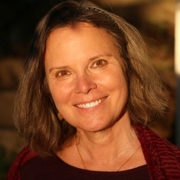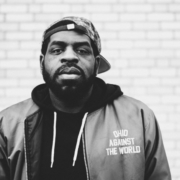Oh, how we writers love our independent book stores. They host our readings, sell our books, and provide jobs for our friends and neighbors. Besides, they’re some of the only people who love books as much as we do. In this post, the marvelous book sellers at Park Road Books have winnowed down their favorite reads for summer. The only thing left to choose? Poolside or beachside.
Sally:
In West Mills by De’Shawn Charles Winslow (June 4)
Azalea “Knot” Centre is determined to live life as she pleases. Let the people of West Mills say what they will; the neighbors’ gossip won’t keep Knot from what she loves best: cheap moonshine, nineteenth-century literature, and the company of men. And yet, Knot is starting to learn that her freedom comes at a high price. Alone in her one-room shack, ostracized from her relatives and cut off from her hometown, Knot turns to her neighbor, Otis Lee Loving, in search of some semblance of family and home.
Otis Lee is eager to help. A lifelong fixer, Otis Lee is determined to steer his friends and family away from decisions that will cause them heartache and ridicule. After his failed attempt as a teenager to help his older sister, Otis Lee discovers a possible path to redemption in the chaos Knot brings to his doorstep. But while he’s busy trying to fix Knot’s life, Otis Lee finds himself powerless to repair the many troubles within his own family, as the long-buried secrets of his troubled past begin to come to light.
Set in an African American community in rural North Carolina from 1941 to 1987, In West Mills is a magnificent, big-hearted small-town story about family, friendship, storytelling, and the redemptive power of love
Substitution Order by Martin Clark (July 9)
Kevin Moore, once a high-flying Virginia attorney, hits rock bottom after an inexplicably tumultuous summer leaves him disbarred and separated from his wife. Short on cash and looking for work, he lands in the middle of nowhere with a job at SUBstitution, the world’s saddest sandwich shop. His closest confidants: a rambunctious rescue puppy and the twenty-year-old computer whiz manning the restaurant counter beside him. He’s determined to set his life right again, but the troubles keep coming. And when a bizarre, mysterious stranger wanders into the shop armed with a threatening “invitation” to join a multimillion-dollar scam, Kevin will need every bit of his legal savvy just to stay out of prison.
A remarkable tour of the law’s tricks and hidden trapdoors, The Substitution Order is both wise and ingenious, a wildly entertaining novel that will keep you guessing—and rooting for its tenacious hero—until the very last page.
Shauna:
Red, White, & Royal Blue by Casey McQuiston (May 14)
Casey McQuiston’s debut is a fun, quirky romance set in an alternate reality that boasts a more beautiful world after November 2016, in which the First Son falls for the Prince of Wales. With an enemies-to-lovers romance between the First Son and the Prince of Wales, an intricate and well-developed familial bond, and a hopeful political landscape, this book is salve on an open wound.
Natalie Tan’s Book of Luck & Fortune by Roselle Lim (June 11)
When Natalie Tan returns to her home in Chinatown following her mother’s death, she finds that the neighborhood she grew up in is in danger of being sold off and gentrified. Using her grandmother’s cookbook, she re-creates recipes meant to heal the wounds of the neighborhood in order to save it. Roselle Lim’s debut is a delightful, cultural novel with recipes, magic dumplings, and a touch of romance.
We Hunt the Flame by Hafsah Faizal (May 14)
This whirlwind Arabian-inspired fantasy by debut author Hafsah Faisal is filled with heart-stopping twists, tight-knit and unbreakable friendships, a slow burn romance, and bright, lyrical prose that left me breathless. Readers of fantasy novels such as Children of Blood and Bone and City of Brass will devour this tale that left me drawn into the story long after it was over.
James:
The Never Game by Jeffrey Deaver (May 14)
Deaver is back! This time with an intriguing new protagonist by the name of Colter Shaw. Raised by a bi-polar survivalist, Shaw becomes a “tracker” who finds missing people. On his current case Shaw finds himself in the world of computer gamers and the intrigue of Silicon Valley. This is a “can’t put it down” thriller.
Recursion by Blake Crouch (June 11)
I liked Crouch’s previous novel, I loved this one. Straddling a fine line between being science fiction and a thriller, Recursion explores the ideas of memory, perception, identity, and reality. At its core, this page-turner explores the concept of a technology that can be used to capture memories and let its user experience them again.
Megan:
Broken Things by Lauren Oliver (YA)
This fantastic book is like reading a mix of Pretty Little Liars, The Slender Man and Bridge to Terabithia. A page turning, gripping thriller about three friends, a secret, and a mystery.
Pride by Ibi Zoboi (YA)
A beautiful take on Jane Austen’s Pride and Prejudice. Set in Brooklyn, Pride deals with gentrification, class struggles while still staying remarkably true to its roots.
The Ancient Nine by Ian K. Smith
This book is a suspense thriller that takes you deep inside one of our country’s elite Ivy League universities and its secret societies. Based on real life events, Ian K. Smith weaves a tale that will keep you on the edge of your seat until the last page.
Molly:
My Sister the Serial Killer by Oyinkan Braithwaite
Wickedly funny and dark, Braithwaite tells the story of how far a woman is willing to go to protect her sister, who has a nasty habit of killing her boyfriends. She soon finds herself second guessing her protective stance when a friend of hers is poised to be the next victim.
Alice isn’t Dead by Joseph Fink
In this perfectly creepy road trip mystery from the author of Welcome to Night Vale, Keisha takes up a job as a cross country truck driver to locate her missing wife, Alice, who she keeps seeing in the background of national news stories. Supernatural mysteries follow her on her journey, including a dangerous, man-eating, cryptid who knows too much of Alice for Keisha’s liking.
Charlotte Lit it grateful to Park Road Books for sending us their top picks for summer reads. Be sure to check their events calendar for upcoming readings by local authors. Follow them on Facebook and Instagram, and visit them in person at the Park Road Shopping Center.


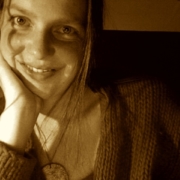 Every Wednesday morning from 9:30 to 10:30 at Charlotte Lit, author Megan Rich offers advice and inspiration, along with a guided prompt to kick writers into gear. She leads “Pen to Paper” a free, open workshop for writers at all levels of experience. It’s a varied group—some are published writers working on memoir, YA, or novels; some not ready, yet, to claim the title “writer”—all benefiting from Rich’s gentle encouragement.
Every Wednesday morning from 9:30 to 10:30 at Charlotte Lit, author Megan Rich offers advice and inspiration, along with a guided prompt to kick writers into gear. She leads “Pen to Paper” a free, open workshop for writers at all levels of experience. It’s a varied group—some are published writers working on memoir, YA, or novels; some not ready, yet, to claim the title “writer”—all benefiting from Rich’s gentle encouragement.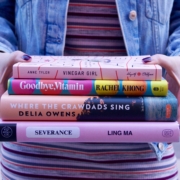 As a child, reading was magical for me. It allowed me to transcend space and time. To travel to new worlds, worlds that might not even exist within our own. I’d stay up late with a flashlight under a blanket, reading until my eyes grew tired. I’d hang on every word of the story.
As a child, reading was magical for me. It allowed me to transcend space and time. To travel to new worlds, worlds that might not even exist within our own. I’d stay up late with a flashlight under a blanket, reading until my eyes grew tired. I’d hang on every word of the story.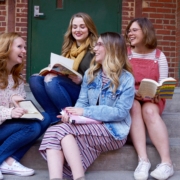 We officially launched this past February. Book Babes is equal parts book review website and book Instagram (or #bookstagram). Our goal in creating it was to make an approachable place for readers and non-readers alike, to find book recommendations and fall in love with reading again (or possibly for the first time).
We officially launched this past February. Book Babes is equal parts book review website and book Instagram (or #bookstagram). Our goal in creating it was to make an approachable place for readers and non-readers alike, to find book recommendations and fall in love with reading again (or possibly for the first time).
